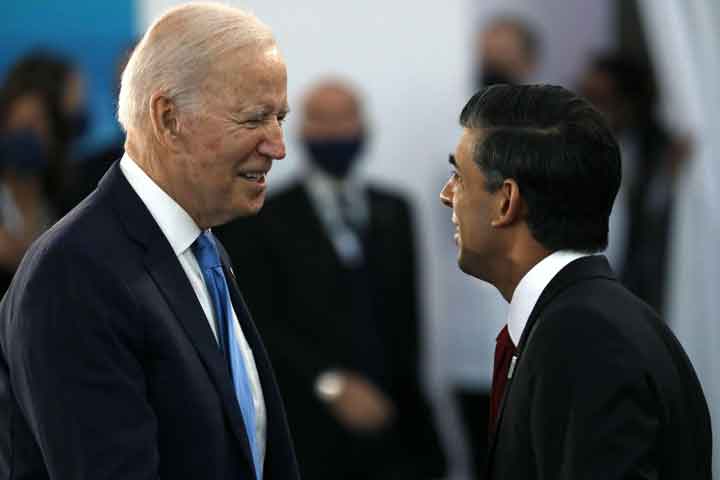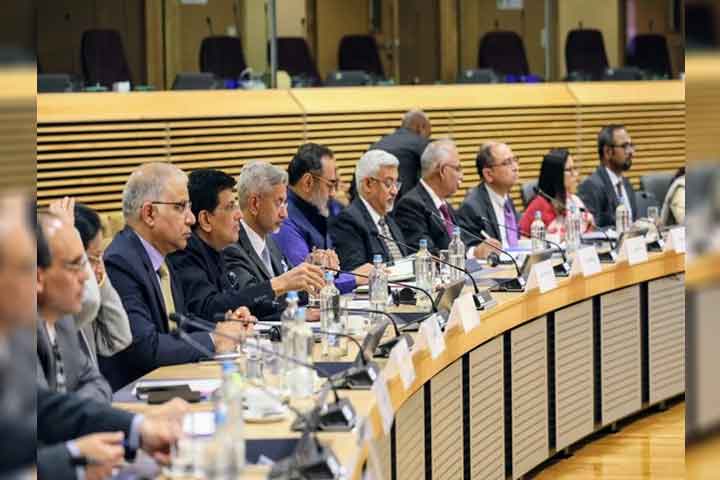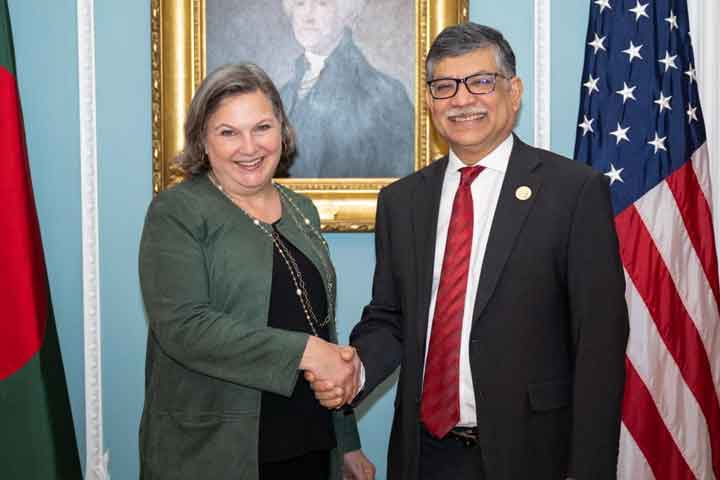PM seeks Bangladesh-Qatar business forum for economic partnership
Prime Minister Sheikh Hasina called for forming a joint trade and investment committee by Bangladesh-Qatar governments, saying establishment of a joint business forum would bring two countries private sectors under a single platform for mutually beneficial economic partnership.
"Our two nations need to reposition our ties based on a mutually beneficial economic partnership," she told the Doha Investment Summit titled "The Rise of Bengal Tiger: Potentials of Trade and Investment in Bangladesh" held at St. Regis Doha hotel.
The premier also invited a Qatari business delegation to visit Bangladesh soon and urged the non-resident Bangladeshis in Qatar to invest in Bangladesh, seeking their participation in the nation-building efforts.
She suggested that business people from Qatar look at certain thrust sectors in Bangladesh as her government remains open to investment proposals in the infrastructures and logistics sectors.
Sheikh Hasina particularly mentioned the scope for Qatari investment in the energy sector, including in renewable energy and said Bangladesh could benefit from Qatar's expertise in offshore gas exploration and energy distribution system.
Pointing out Bangladesh's agricultural growth, she said it also creates scope for cooperation in agro-processing industries, with buy-back arrangements to Qatar.
In this context, she highlighted that the government has plans to set up three special tourism zones, where Qatar can engage in both real estate and hospitality sectors.
"Bangladesh aspire to have at least ten Unicorns in 'Smart Bangladesh', and its vibrant start-up scene is ready to draw Qatari investment," she continued.
In addition, Qatari investors can consider portfolio investment in Bangladesh, she said, adding that Bangladesh Securities and Exchange Commission is working hard to further develop the capital markets.
"We've taken several steps to establish our bond market on a solid footing, and we are soon going to include derivative products in our capital markets," she said.
The prime minister observed that disruptions in international fuel market due to the war in Ukraine have pushed countries like Bangladesh into a hard spot.
"In order to meet our growing energy need, we are interested in increasing our LNG imports from Qatar," she said, adding, "We also request Qatar to explore opportunities for further exports from Bangladesh."
She said Bangladesh and Qatar are bound by strong brotherly ties and friendship, and the Bangladesh expatriate community here is an excellent bridge between the two peoples.
"I am pleased to see many Bangladesh nationals today along with the Qatari business representatives," she added.
The prime minister said Bangladesh has one of the most liberal investment regimes in its region.
She said her country is offering incentives including tax holiday, concessionary duty on machinery import, remittance of royalty, technical know-how and fees, allowing 100 percent foreign equity, unrestricted exit policy, full repatriation facilities of dividend and capital on exit, etc.
She said the Bangladesh Investment Development Authority (BIDA) is offering a number of services to foreign investors under one roof, while her government is setting up 100 Special Economic Zones with coordinated facilities and there are so far five country-specific Economic Zones in the making.
Sheikh Hasina said they are investing heavily in infrastructures fit for a regional connectivity and logistics hub.
In this connection, she referred to different mega-projects like the Padma Multi-purpose Bridge, the Karnaphuli river tunnel, the Matarbari Deep Sea Port, the expanded third terminal at Dhaka International Airport, the Rooppur Nuclear Power Plant and the Metro-rail system in Dhaka.
"All testify to our determined to march forward," she said.
Sheikh Hasina said her government has already brought the entire nation under electricity and internet coverage, while Bangladesh's first communication satellite Bangabandhu-I has opened up new horizons.
The premier said Bangladesh has a large pool of easily trainable workforce available at a competitive wage, while it has got the world's second largest community of registered IT freelancers.
"We've made big leaps in developing our digital backbone up to remote areas," she said, mentioning that the country's boys and girls are preparing themselves to join the Fourth Industrial Revolution.
"We are gradually building 38 Hi-tech Parks, with opening for foreign investment," she said, adding, "Our vision now is to build a 'Smart Bangladesh' by 2041, drawing strength from a knowledge-based society."
Sheikh Hasina said Bangladesh offers to be a willing partner in realizing the Qatar National Vision 2030.
"We can equip our workforce with knowledge and skills to cater to the advanced employment market in Qatar," she said.
She also said, "We are grateful to the government and people of Qatar for taking good care of our people."
Bangladesh is now well on track to graduate from the UN LDC Group in 2026, as its 168 million people achieved this through their hard work and commitment, Sheikh Hasina said.
She continued: "Our government tried to offer them the right enabling tools and policies."
The prime minister said that COVID-19 pandemic proved that her country could realize their vision to build a "Digital Bangladesh".
Just before the pandemic, she said Bangladesh economy reached a growth rate of 8.15 percent.
Even during the pandemic, she mentioned, Bangladesh posted a growth rate of 6.94 percent, while its per capita income has now reached US$ 2,824, with three times rise in one decade.
She said Bangladesh's export volume has exceeded US$ 60 billion mark and received FDI of US$ 2.8 billion in 2022.
She continued that Bangladesh is among the world's top ten remittance earning countries and it is now the world's 35th largest economy with a GDP of US$ 460 billion.
"We are projected to become the 24th largest by the first half of the 2030s," she said.
Sheikh Hasina said during her first tenure in 1996-2001, her government fully opened up the door of trade and business for the private sector.
"Now our private sector is flourishing and our government is working as a facilitator," she said, adding, "Together, we hope to take Bangladesh to the next level of development."
The prime minister reaffirmed her commitments to fulfill Bangabandhu Sheikh Mujib's dream of building a "Sonar Bangla" expressing confidence that the Qatari leadership and people will continue to stand by Bangladesh in this regard.
07 Mar 2023,10:20
















 Live Tv
Live Tv









